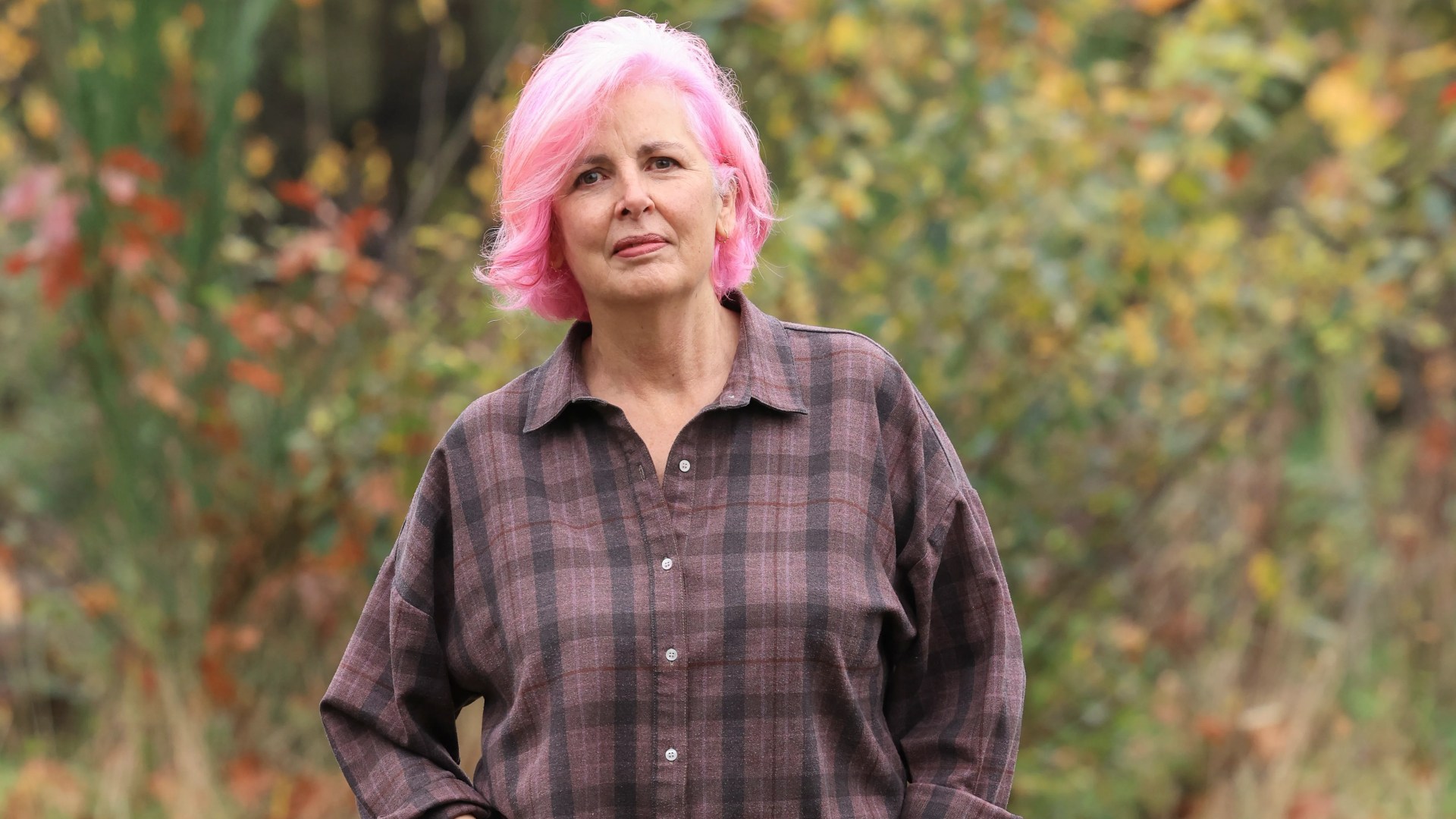DEMENTIA is a disease we associate with the old and frail, memory blips and people slowly fading away.
It’s not something Mary Whitaker imagined would strike her husband Richard Fried at 55, turning their lives upside down.
5

5

5
But for years she had noticed a change in the man who friends once dubbed “Rickipedia” due to his vast knowledge.
When he started behaving erratically at work and missing mortgage payments, she suspected he was having a mental breakdown.
The family home, which Richard had practically built with his own hands, had to be sold due to a series of financial problems that left Mary baffled.
Then in 2015 tests revealed the cause — Richard had been living with young-onset dementia.
The cruel disease affects around 7.5 per cent of the 900,000 people in Britain living with dementia, striking before the age of 65.
Richard, now 64, was given the news on New Year’s Eve — a day Mary says she will never forget.
She recalls: “Telling your kids that their amazing dad who they worshipped, such a clever guy, had this horrible, bleak diagnosis was just the worst thing ever.
“He didn’t drink or smoke, was always very fit and had a healthy diet.
“He did nothing wrong in his entire life to get this horrible disease.”
By 2017, Mary had to give up her career in fashion to care for Richard, receiving only the state Carer’s Allowance of £81.90 a week.
As the disease progressed, the gentle, caring man Mary had been married to for more than 30 years turned violent, a potential symptom of the disease.
It meant he had to be left with at least two people, so Mary began forking out £27,000 a year to pay for 15 hours of care a week.
Last month, the Government confirmed the weekly Carer’s Allowance would rise to £83.29 next April.
Chancellor Rachel Reeves said it was “the largest increase since the Carer’s Allowance was introduced in 1976”.
But for Mary, 65, and many carers like her, the money goes nowhere near far enough.
She tells Sun Health: “That figure is like a slap in the face. It’s derisory.
“When you’re caring for 35 hours a week or more to qualify in the first place, this money doesn’t even cover the basics.
“Richard and I couldn’t afford our rent.
“What does the Government think people are living on, because it’s certainly not the Carer’s Allowance?”
Dementia is the UK’s biggest killer and affects not just those who fall prey to the disease.

5
New research by the Alzheimer’s Society shows that more than half of those caring for people with dementia have seen their mental health affected.
The charity is urging people to share their story as part of its campaign to bring dementia out from Behind Closed Doors.
Spokesman Tim Baverstock said: “It is vital the Government seizes this moment to revolutionise dementia diagnosis and care.”
Mary thinks the first signs of Richard’s illness were showing in the early 2000s.
She says: “Every time we were about to leave the house, there was a fiasco about where he’d put his van keys.
“We had a place for them for ten years, but he’d lose them again and again.
“I just thought, ‘Oh, come on, Richard. Get a grip.’”
As a former shepherd and landscape architect, he had once been highly regarded.
But clients began calling Mary asking where he was, as he frequently missed meetings.
Soon she found herself running two businesses instead of just her own as a couture fashion designer.
‘SHATTERED THE FAMILY’
After they were married in 1989 and the first of their two children was born, Richard transformed a derelict building in Mortlake, South West London, into their dream family home.
But with his declining memory and inability to manage finances, that dream began to slip away.
Mary says: “I’d say, ‘What the hell, Richard?
“The mortgage date is approaching, and you haven’t sent invoices to your clients.’”
In desperation, they signed up for couple counselling with Relate, but Richard’s inability to explain his behaviour left Mary feeling even more lost.
She says: “Every month I’d be in tears on the kitchen floor, wondering how we were going to manage, and his communication was just non-existent.
“I thought, ‘Doesn’t he love me any more? Why can’t he see how important this is?’ I thought he was having a breakdown.
“In the end, I drew a line in the sand.
“I said, ‘Richard, I don’t know what’s going on here, but if you haven’t sorted this out in a year’s time when our youngest finishes school, we are going to have to sell the place because otherwise we’re going to be repossessed’.
“The time came and we did sell.
“Again, there was very little engagement from Richard and we were all distraught because we loved living there.”
In 2012, hoping the fresh country air might help Richard, the family moved to Edenbridge, Kent and rented an eco-cabin from close friends.
We have all been absolutely in floods, and still are regularly
Mary Whitaker
They sought medical help and Richard was put on anti-depressants, but it took years of uncertainty before a doctor recommended a PET scan.
Mary recalls: “The neurologist said: ‘I have your results and they have come back positive.’
“At first, I thought that sounded good, but he explained it meant Richard had plaques on his brain.”
Plaques form when proteins clump together in the brain, suffocating brain neurons.
This information shattered the family.
Mary says: “We just sat there, holding hands, asking, ‘What now?’.
“We have all been absolutely in floods, and still are regularly.
“I would occasionally find Richard with his head in his hands.

5
“He’d be rocking backwards and forwards and saying in frustration, ‘my f***ing brain’s not working’.”
Richard’s dementia worsened and, by 2017, his once steady and calm demeanour gave way to sudden outbursts of confusion and anger.
Mary says: “He’d get parking tickets all the time.
“He’d park his van and get so disoriented that he’d lose hours of time.
“Once, he even lost the van entirely while doing a job.
“He declared it stolen, and it turned up weeks later in a car pound with £1,000 worth of parking fines.”
Richard went missing on the way to a hospital appointment in Hammersmith, West London — not returning until hours later, disoriented but unharmed.
The panic that gripped Mary was unbearable.
She says: “It was shocking.
“The police were looking for him everywhere. I was convinced that he was dead.
“He didn’t return until one o’clock in the morning.
“He’d gone all around London and bought some postcards in a gallery.
I never thought Richard could hurt me but it got to the point where I had to hide knives
Mary Whitaker
“Then he’d tried to drive home but got disorientated.
“He’d sat in a Sainsbury’s car park and waited until things became clearer and he could remember the way home again.”
That year, Mary had no choice but to give up work and tend to Richard 24 hours a day.
To give her some very brief breaks, she enlisted the help of home carers.
She explains: “I had a small Carer’s Allowance of £81 a week, but that was it and I couldn’t work.
“The cost of having carers for 15 hours a week was over £27,000 a year.
“We’d bought two flats with the money from the sale of our home in Mortlake and had been living off the rental, but we had to sell those too to pay the costs.”
Earlier this year, it became clear that Richard needed more care than Mary could provide at home.
She says: “It was terrifying because I thought we could keep him at home forever with more care, but it wasn’t safe any more.
“I never thought Richard could hurt me but it got to the point where I had to hide knives.
“His anxiety was so high that he didn’t know who we were, and it became physically frightening.”
‘SO CRUEL’
The situation became so dangerous Mary had to ask her children — a son and daughter now in their thirties — to help her care for their father.
She says: “We had carers but they would not look after him by themselves.
“We’d have two people sitting with him at all times because it wasn’t safe for just one person.
“He would pick up chairs and try to throw them through windows.”
In August, Mary and the children made the heart-wrenching decision to move him into a care home.
Although the move was tough, it brought some relief for Mary.
She says: “He was smiling when we took him, and it went smoothly.
“I visit him four or five times a week and he’s well cared for.”
But the financial strain is far from over despite selling all their assets, and Mary is trying to rebuild her career.
Richard’s care costs £1,900 a week.
Mary says: “What really got to me was that my £81 a week Carer’s Allowance stopped the day Richard went into care.
I lost the man I married a long, long time ago, but now I miss his physical presence at home
Mary Whitaker
“I gave up my job to care for him for eight years, and now I’m expected to suddenly have money again, overnight.
“It feels so cruel.”
It was confirmed that unpaid carers would also be able to earn an extra £45 a week, with the earnings limit for carers rising from £151 to £196.
But Mary says: “The financial tangle of knots that you have to unravel in order to comply with their parameters for earning this amount of money is ridiculous.
“It is grinding people, already on their knees, further down.
“My message to [Health Secretary] Wes Streeting would be this: Recognise carers for the heroes they are, and actually give them some money to do the job they’re doing.
“Letting them do it on their own and breaking families by ruining them financially is not right.
“The Government is relying on good-natured family members to take care of loved ones, but they’re breaking us financially and emotionally.”
Mary does not know what the future holds, but she remains devoted to her husband.
She says: “Richard is very much my husband.
“I lost the man I married a long, long time ago, but now I miss his physical presence at home.
“I really look forward to my visits because we have sweet little interactions.
“I don’t think he recognises me, but I think there’s something about the ambience around people that he can connect to.
“I made lots of photo albums for him and we’ve got lots of memory books we look at. We talk about people and we play music.
“He’s my soulmate, absolutely, and I’ll always love him.”




